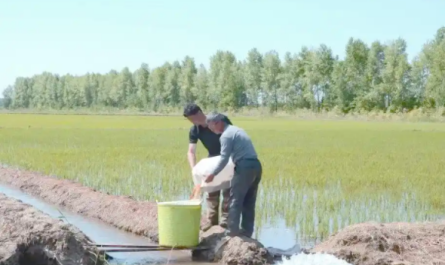Functional water-soluble fertilizer categories and functions
Water-soluble fertilizers are a type of fast-acting fertilizer. They dissolve completely in water and their effects are quickly visible, playing a positive role in achieving high crop yields. By supplementing the necessary nutrients and adjusting the fertilizer formula during the growing season, crop production speed can be improved.

1. Plant Growth Regulator Water-Soluble Fertilizer
This type of water-soluble fertilizer contains substances that regulate plant growth. Common main ingredients include gibberellin, triacontanol, and sodium nitrophenolate, which promote crop growth and are suitable for use in the mid-stage of crop growth.
2. Amino Acid Water-Soluble Fertilizer
Plant-derived amino acids mainly come from fermentation products such as soybeans and oilseed cakes; animal-derived amino acids mainly come from by-products such as leather, hair, and fishmeal. These are neutralized with ammonia or other alkaline substances in a specific ratio to adjust the pH value, resulting in the stock solution. A compound microbial community is then used to ferment the materials, which is then processed into amino acid water-soluble fertilizer.
3. Alginic Acid Water-Soluble Fertilizer
This is extracted from seaweed, such as *Alternanthera philoxeroides*, *Laminaria japonica*, and kelp. It requires chemical extraction, fermentation, and low-temperature physical extraction. It contains abundant vitamins, seaweed polysaccharides, and various plant growth regulators, which can regulate the balance of endogenous hormones in crops.
4. Sugar Alcohol Water-Soluble Fertilizer
This water-soluble fertilizer is extracted from the phloem of plants. The sugar alcohols in it can act as carriers for nutrients such as boron and calcium, rapidly transporting mineral nutrients within the plant's phloem. The synthesized nutrients can be quickly absorbed and utilized by crops.
5. Fertilizer-Pesticide Water-Soluble Fertilizer
Adding different types of pesticides and herbicides to water-soluble fertilizers can promote crop growth and development, and also control pests, diseases, and weeds. When using this type of fertilizer, factors such as the occurrence patterns and habits of pests and diseases, and climatic conditions should be considered to minimize the risk of pesticide damage.

1. Plant Growth Regulator Water-Soluble Fertilizer
This type of water-soluble fertilizer contains substances that regulate plant growth. Common main ingredients include gibberellin, triacontanol, and sodium nitrophenolate, which promote crop growth and are suitable for use in the mid-stage of crop growth.
2. Amino Acid Water-Soluble Fertilizer
Plant-derived amino acids mainly come from fermentation products such as soybeans and oilseed cakes; animal-derived amino acids mainly come from by-products such as leather, hair, and fishmeal. These are neutralized with ammonia or other alkaline substances in a specific ratio to adjust the pH value, resulting in the stock solution. A compound microbial community is then used to ferment the materials, which is then processed into amino acid water-soluble fertilizer.
3. Alginic Acid Water-Soluble Fertilizer
This is extracted from seaweed, such as *Alternanthera philoxeroides*, *Laminaria japonica*, and kelp. It requires chemical extraction, fermentation, and low-temperature physical extraction. It contains abundant vitamins, seaweed polysaccharides, and various plant growth regulators, which can regulate the balance of endogenous hormones in crops.
4. Sugar Alcohol Water-Soluble Fertilizer
This water-soluble fertilizer is extracted from the phloem of plants. The sugar alcohols in it can act as carriers for nutrients such as boron and calcium, rapidly transporting mineral nutrients within the plant's phloem. The synthesized nutrients can be quickly absorbed and utilized by crops.
5. Fertilizer-Pesticide Water-Soluble Fertilizer
Adding different types of pesticides and herbicides to water-soluble fertilizers can promote crop growth and development, and also control pests, diseases, and weeds. When using this type of fertilizer, factors such as the occurrence patterns and habits of pests and diseases, and climatic conditions should be considered to minimize the risk of pesticide damage.
RECENT POSTS
Featured News



